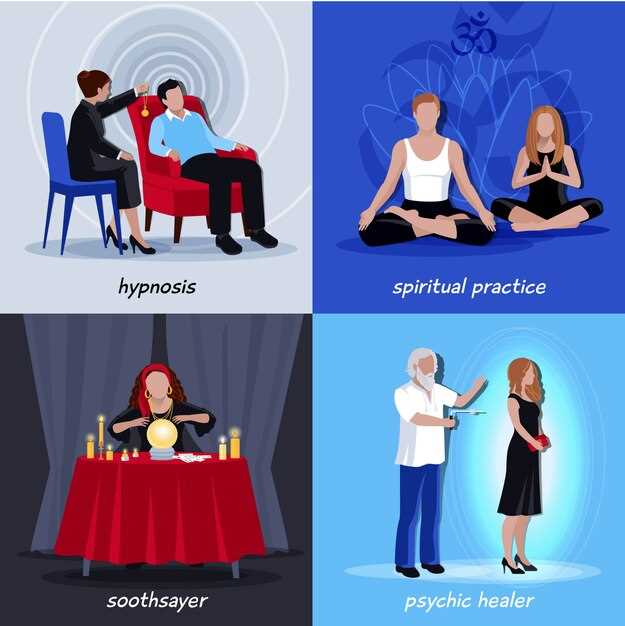
Begin with a 10-minute mindful check-in to observe mood, not react to it. Esto approach flows from evidence showing awareness cuts impulsive choices. Use a simple 0–10 scale to note energy, sleep, appetite; track status over weeks to see patterns. Many people report mood fluctuations during changes in status; awareness helps soften ambivalence, reduce loss. This process can ensure you stay aligned with what you value rather than chase quick validation on apps.
Choose concrete activities to fill silence. After work hours, join a class; take a walk; volunteer; these experiences boost mood, widen social circles, reduce loss. When you chose to shift patterns away from chasing status in apps, you gain mastery over daily life. Keep a simple log of experiences to document progress; this источник becomes evidence that change is possible.
Preserve healthy relationships by staying open to change. Regular check-ins among trusted friends provide a stable base; a great way to monitor ambivalence, mood shifts, fear of loss. A plan to stay connected reduces the lure of rushed commitments. If a social circle feels stale, leave a few apps; the point is to create ongoing connection beyond screens.
Focus on finding meaning in daily routine. A mindful approach means noticing what sustains you besides romance: hobbies, skill-building, volunteering. Researchers report that deliberate attention to values reduces ambivalence; it helps turn loss into a signal for change. What matters is consistency; a small, reliable practice each day builds resilience.
Reframe setbacks as data rather than failure. Each experience offers lessons: what you observed, what you chose, what you will adjust. Treat past relationships as sources of insight; they gave clues about preferences, boundaries, what you value in care. This mindset lowers self-judgment, keeps you moving toward meaningful connections.
Maintain a practical plan for daily vitality. Sleep, nutrition, movement matter; ensure regular meals, light exercise, sunlight. If you face ambivalence, schedule a weekly meetup; progress is often cumulative, not instant. The status you hold today is a point you chose; stay consistent yields growth, not abrupt life changes.
Practical, Actionable Guide for Singles
Begin with a concrete daily routine that prioritizes self-care and social connection. theres a simple truth: small, steady steps beat big, sporadic bursts. A thing to remember: your days stay steadier when you build a routine around three pillars: movement, learning, and contact with others. This approach has worked along years for many people, and it is designed to be sustainable rather than a quick fix.
Make a weekly plan with concrete targets: two 30-minute workouts, one learning block, and one check-in with a friend. The thing is to start small and stay consistent. If youre using apps to connect, pick 1-2 platforms and limit scrolling time to a maximum 20 minutes per day to avoid fatigue. Reach out to someone you havent spoken to in a while and offer a quick check-in; this creates opportunity to rebuild connection and support.
Build your support by inviting one friend to a regular activity, like a walk, a class, or a coffee. Been consistent with invitations matters: the more you make them happen, the more likely you are to maintain relationships long term. To ensure momentum, set a recurring plan for the same day each week and track what worked.
Use practical self-checks to monitor mood and energy. Check in each evening: what helped you today, what drained you, and what you want to do differently tomorrow. Stay curious about your feelings, and write 1-2 sentences in a short journal; this builds yourself resilience and gives you a reference for years to come.
Take on a small project that gives you a sense of purpose: volunteer, learn a skill, or mentor someone. This is an opportunity to meet new people, stay engaged, and build a steady source of value – istредничний источник of calm when days feel long.
Make sure to track progress toward your goals. Reached micro-milestones, like maintaining a habit for a full week, then celebrate with a simple reward. Youre making progress–and many years have shown that momentum grows when you keep showing up for yourself.
Label Emotions Quickly to Reduce Overwhelm
Label emotions within 5 seconds after they surface; choose just a one-word label such as sad, anxious, or frustrated.
This quick labeling reduces mental load; likely preventing escalation in tense moments; instead, it supports healthier reacting patterns.
Use a 3-step routine: name the feeling; assess its health impact; choose a next move that restores balance.
In a team context, labeling becomes a shared practice, redefining their status quo toward closure.
Here is a starter set of labels to begin with: fear, sadness, anger, anxiety, frustration, loneliness, relief, hope, excitement.
embrace their emotions; accepting the status; redefining balance; leaving behind patterns that harm health; this is a vital step.
Finding closure becomes likely; the label made space for a clearer next move; mood improves.
Rather than dwelling, leave behind leftovers; those patterns never serve.
Handle triggers here without stepping into overload.
Together this becomes a team practice; progress feels tangible.
| Emoción | Label | Quick Move |
|---|---|---|
| Fear | Fear | Name; 3 breaths; observe |
| Loneliness | Loneliness | Name; brief contact plan |
| Anger | Anger | Name; pause; reset pace |
| Hope | Hope | Name; breathe; reorient |
Build Daily Routines That Fight Loneliness
Schedule a 20-minute morning check-in to set balance as a theme for the day; note one specific area where you could grow; write a thought you want to reframe later.
- Morning check-in: set balance as a theme for the day; list one personal goal; choose a specific action; record a thought that could block connection; reframe it into a plan for a small interaction.
- Midday contact: reach out to one other person; propose a 10-minute chat; mention an experience you would be discussing.
- Evening reflection: recount three moments of happiness here; consider personal progress; discussing whether you want more support tomorrow.
- Weekly trips or experiences: schedule a brief outing in an area new to routine; choose something different; note what experiences moved you toward belonging; this can feel rewarding.
- Self care moment: allocate a cuddle by a pet or a hug from a friend; weave a ritual such as a warm drink, a short walk, or music that supports mood.
There is value in small steps; usually these routines become part of a whole that helps you feel less unable to connect; those small steps could transform private experiences into shared moments; you deserve happiness; these routines help you build balance in personal areas of life; a trusted source said small routines matter.
Remap Self-Worth Beyond Relationship Status
Make this one change today: think of your value as whole, independent of whether you’re dating or single. This awareness usually dissolves the habit of defining yourself by a partner’s presence. Here you start validating yourself through actions, not status.
If isolation hits, enter a small action that demonstrates capability: step into a new activity, start a project, or reconnect through someone you know in the community. Each stepping small shows you can build meaning without relying on others. You are not alone. This can be done together alongside a friend.
Hay significado en el progreso privado; cuando aprendes nuevas habilidades, conviertes el fracaso en retroalimentación, demostrándote a ti mismo que importas por razones que no tienen nada que ver con una pareja, un camino de aprendizaje. Tu valor reside en más que un solo momento; no se trata solo de romance. Aquí, el aprendizaje es una expansión gradual de tu sentido de ti mismo.
Construir una rutina que refuerce la autonomía te ayuda a sentirte libre. Haz algo tangible cada día que puedas señalar como evidencia de tu capacidad; construye algo, termina un proyecto o profundiza en un pasatiempo. Elige este camino; se siente mejor en lugar de perseguir elogios externos.
Si buscas el respeto de los demás, te arriesgas a tener un sentido de autoestima frágil. En cambio, cultiva estándares que puedas cumplir tú mismo. El resultado es una confianza constante que fortalece las conexiones futuras. Ese es el punto: tu valor proviene de dentro, no de la validación externa. Una persona que respete tu independencia atraerá el tipo de atención adecuado.
Construir relaciones es una dimensión, pero también necesitas invertir en lazos no románticos. Reúnete con un amigo para tomar un café, entrena a un grupo de jóvenes o contribuye a una causa. Estos pasos mejoran tu estado de ánimo; te dan una métrica más allá del estado de las citas, preparándote mejor para parejas auténticas cuando aparezcan.
Aquí puedes seguir el progreso: mantén un registro sencillo de tres elementos cada día: aprender algo nuevo, ayudar a alguien o adentrarte en un nuevo entorno. Con el tiempo, notarás que tu autoestima no está ligada a un único resultado o relación.
Estar soltero es una fase, no un veredicto. Concéntrate en construir significado en el trabajo, la creatividad, el servicio; te mueves hacia una libertad que te hace más resistente en cualquier relación que elijas más adelante. Los recursos necesarios son tiempo, paciencia y apoyo.
Usa un Desafío Rápido de Pensamiento para Replantear el Rechazo

Aquí comenzando este rápido desafío de pensamiento, discutiendo los sentimientos negativos desencadenados por el rechazo sin permitirles definir su punto de vista. ¿Cuál es la evidencia que apoya esta creencia? ¿Qué contradicciones surgen? Examine dos hechos de interacciones recientes que contradicen su creencia, luego anótelas aquí.
Nunca dejes que esto se alargue: escribe dos breves declaraciones que reformulen la escena. Tal vez el enfoque se malinterpretó, tal vez una señal perdida se convierte en una señal para el aprendizaje. Busca pequeños cambios, luego transfiérelos a una acción simple que haya sido útil para las interacciones cotidianas, solo dos puntos.
Durante los momentos de aislamiento, los ejercicios atractivos ayudan a sanar. Mira los pensamientos como clima pasajero; permanecen y luego se van. Replantear cambia cómo se ven las interacciones, mientras que el estado de ánimo se estabiliza a través de la práctica, produciendo victorias rápidas.
Los recursos interesantes incluyen libros, fuentes de confianza, compañeros de confianza; esto te mantiene con los pies en la tierra aquí y allá. Rastrea el источник de una creencia hasta una ocasión concreta, tal vez una interacción complicada, un recuerdo alcanzado durante viajes o un comentario de un compañero; luego replantea el significado que le asignas.
Amplía tu círculo social con pequeños pasos realistas

Invita a una persona a una caminata de 30 minutos esta semana. Verás un pequeño cambio en el estado de ánimo, un aumento en la confianza social, una sensación de posibilidad que alimenta los planes futuros. Céntrate en un impulso constante; cada paso te ayuda a sentirte capaz, a reducir los sentimientos de aislamiento.
- Decisión: elige un único micro-objetivo cada semana; las opciones incluyen una reunión, una charla en la biblioteca, una sesión de club de lectura.
- Paso 2: Concéntrate en escuchar; elabora una pregunta abierta sobre un libro o pasatiempo favorito.
- Paso 3: Entrar en espacios compartidos: únete a un equipo local, un proyecto de voluntariado o un taller.
- Paso 4: Cree una rutina de calendario sencilla: asista a dos eventos de baja presión al mes; anote los temas que despierten su interés; registre sus sentimientos, lo que aprendió.
- Paso 5: Construye un equipo a tu alrededor; contacta a algunas personas, propón una actividad conjunta, elige espacios donde te sientas cómodo.
Tal vez los problemas sociales dan forma a las elecciones; aceptar la pérdida, el duelo afloran a medida que cambia la compañía. El significado viene al encontrar pequeños momentos de conexión. No estás solo; yo mismo me recuerdo que el progreso realizado se basa en pisar, no en saltar. Al alcanzar hitos, empiezas a sentirte más capaz, más hábil para encontrar significado en las cosas cotidianas. Pasos graduales alcanzaron un cambio duradero en el estado de ánimo; las relaciones crecen. Centrarse en lo que funciona te ayuda a seguir avanzando. Leer libros sobre temas que disfrutas apoya conversaciones significativas entre aquellos que conoces.











